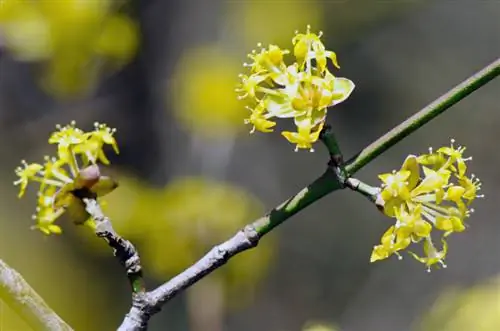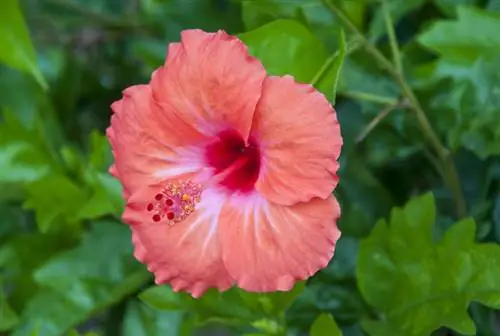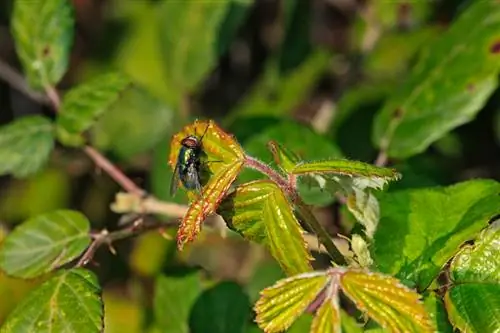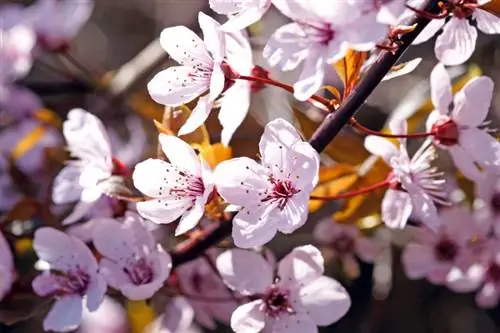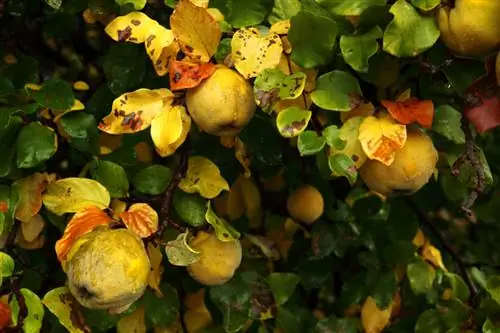- Author admin leonars@hobbygardeners.com.
- Public 2023-12-16 16:46.
- Last modified 2025-01-23 11:20.
Cornelian cherries are one of the most robust fruit trees that exist in our latitudes. Diseases therefore almost never occur. Only in very wet summers can the leaves suffer from fungal diseases. Pests do not cause any problems for the yellow dogwood.
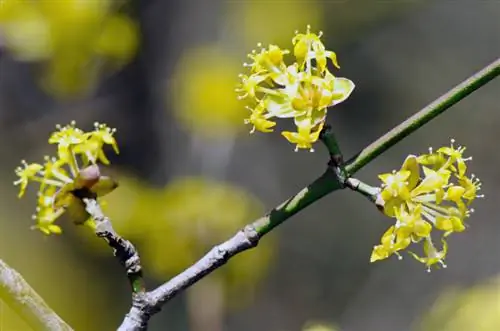
What diseases can affect cornelian cherries?
Diseases on a cornelian cherry are rare, but fungal diseases such as leaf spot or powdery mildew can occur in wet weather. Low-fat milk, field horsetail decoction, sheep's milk decoction or fern broth are suitable for natural control.
Yellow, dried and falling leaves
Occasionally the leaves of the cornelian cherry show abnormalities, such as:
- Rolling up
- spotty or yellow discoloration
- greyish or whitish coating
- dry up
- premature leaf drop
In most cases these are fungal diseases such as leaf spot or powdery mildew, which mainly occur in very humid weather.
Treatment for illnesses
Only weakened, younger trees are seriously damaged by fungi. The older the cornelian cherry gets, the more resistant it is to all kinds of fungal diseases. Mulch the soil under the cornelian cherry so that it receives more nutrients. This allows you to regulate the soil moisture at the same time.
Cut off infected branches and dispose of them with household waste or burn them.
You can tackle the fungus itself with fungicides from garden shops. However, in the interest of bees, bumblebees and birds, it is better to use natural control methods. For example, spray the cornelian cherry with:
- Fresh, low-fat milk
- Field horsetail brew
- Sheep Gifts
- Fern Broth
If the infestation occurs repeatedly
As a rule, fungal infection on the cornelian cherry occurs once. If the fruit tree shows the symptoms mentioned more often, you should research the causes of the disease.
Too moist soil is often to blame. Here it can be helpful to loosen the soil and create drainage.
Sometimes it also helps to thin out the cornelian cherry and ensure that it is not too close to other trees. Good air circulation keeps fungal infestation in check.
Pests are not known
Cornelian cherries are resistant to pests. One of the reasons for this is that the wood is so hard that hardly any pests can bother with it.
Tip
The cornelian cherry is so robust that it can cope with almost any soil. It is even resistant to road s alt, making it ideal for hedges along paths and roads.

